Pasadena—Taiwanese Catering Miracle
Su Shih-ya / photos Jimmy Lin / tr. by Geoff Hegarty and Sophia Chen
September 2014
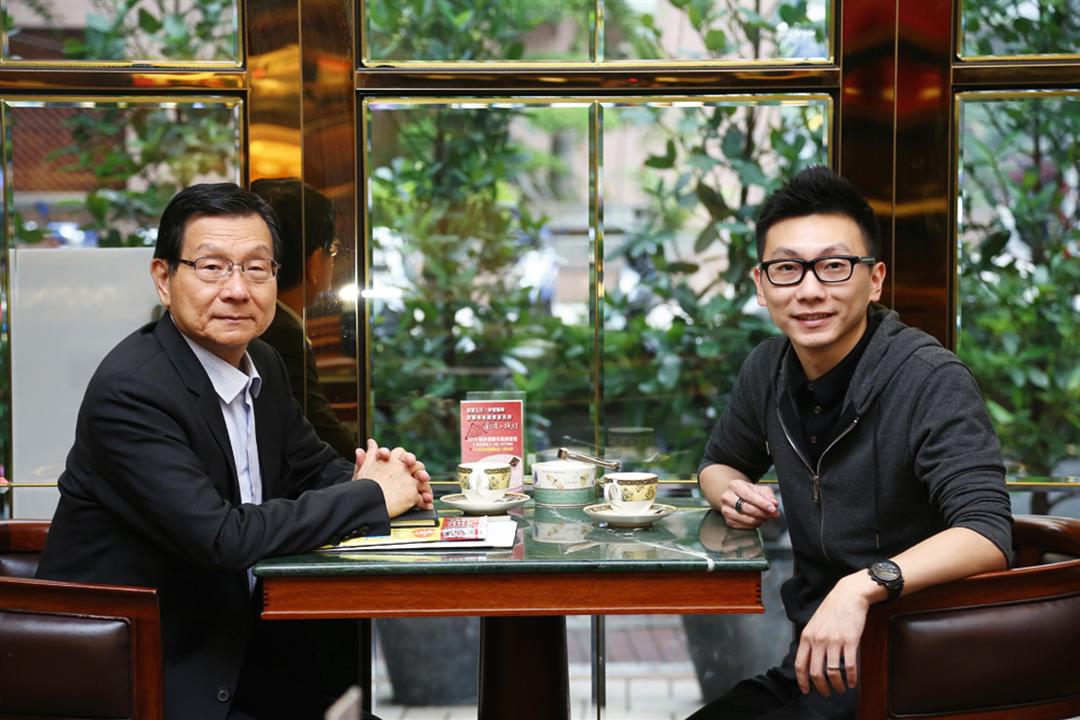
Taipei is no longer the nucleus of Taiwan’s catering industry. In recent years, chain restaurants in the country’s central and southern regions have expanded exponentially, and are leading the vogue. Kaohsiung’s Pasadena International Group, probably the best example of the trend, has not only nurtured a world-champion baker, but also regularly invites a chef from a Michelin-starred restaurant to Taiwan. Pasadena uses local natural ingredients in their stylish dishes, and has sparked a craze for “slow eating.”
Interestingly, Pasadena’s owner Hsu Cheng-chi was originally an entrepreneur on Taiwan’s traditional industrial scene who branched out into catering in 2000. In just a few years, he has not only created a huge demand for Taiwan’s “champion bread” (in the form of a suitable gift package), but has also built up a complete service industry group, a prime example of enterprise transformation.
Today, Pasadena is not only the name of a restaurant, but also represents a foray into the worlds of culture and creativity.
Kaohsiung baker Wu Pao-chun won a gold medal at the Coupe du Monde de la Boulangerie in 2010. But even before gaining this honor he had developed a style of bread made with wine-steeped longans, which became Taiwan’s first “gift package” loaf. Wu’s superior baking skills were nurtured at Pasadena.
The founder of Pasadena is Taiwan businessman Hsu Cheng-chi. Born in 1947, Hsu is a typical example of successful entrepreneurs who came to prominence during the 1970s and took full advantage of the nation’s economic growth. Hsu established Push Power Enterprise, producing mainly injection-molded plastic products such as computer cases, with the company’s production lines spread throughout Taiwan, Malaysia, and mainland China.
During a business trip to Kyoto in 2000, Hsu’s client took him for breakfast to a café which had been run by the same family for three generations. Hsu was highly impressed with the warmth of the service and the shop’s ambiance, both highly reminiscent of the local grocery store of his childhood. It was this nostalgic experience that inspired him to open a café in Kaohsiung.
“I come from the countryside. When I was a kid, my family ran a grocery store where the villagers would come not only to buy things, but also to take the opportunity to have a chat. Our store was in fact like a center of communication and became an important social hub for the entire village,” says Hsu. His wonderful experience at the café in Kyoto inspired him to set up a place in his current hometown where people could enjoy the warm atmosphere and a chat.
In pursuit of his goal, he searched almost the entire environs of Kaohsiung City before finally finding the right place. But because the space was really too big for just a café, and also because his wife and children loved French cuisine, after some discussion he modified his original design from a café into a French restaurant. The second floor was transformed into an art gallery.
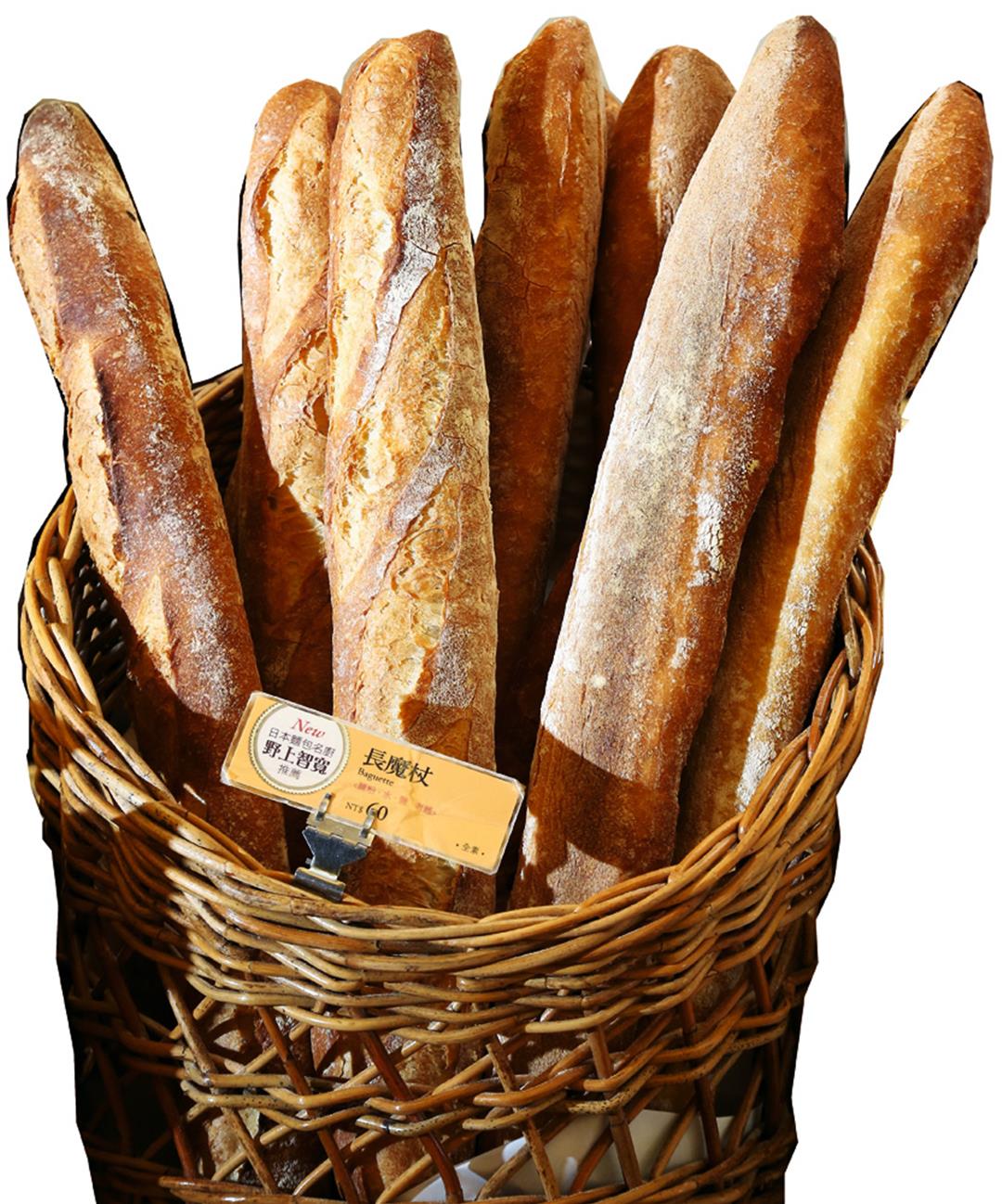
Pasadena has nurtured a number of master bakers. Champion Wu Pao-chun developed the globally renowned wine-steeped longan bread (facing page, left foreground)while at Pasadena.
The name for the restaurant was inspired by a beautiful city called Pasadena, northeast of Los Angeles, California. With its annual Rose Parade, Pasadena has a charming ambiance, and it is the home to the Art Center College of Design, one of the top art schools in the US. Hsu wanted to endow his restaurant with something like the historical and cultural richness of its namesake. So the concept of a culturally oriented business group was born.
The enterprise was christened Sincewell Technology, with the business divided into Pasadena International Group, Sincewell Gallery, and La Blancheur Doll World. A diverse chain of catering establishments was built up, including bakeries, Italian and Japanese restaurants, and a restaurant-bar. As of July this year, the enterprise was operating six restaurants and eight bakeries prominently positioned in the cultural landscape of Kaohsiung, with locations such as the banks of the Love River, the Cultural Center, the Art Gallery, Pier-2 Art Center, Zuoying High Speed Rail Station, and Chang Gung Memorial Hospital. This summer the company is expanding its business into Tainan, opening a branch at the old Tainan Mayor’s Residence, which has remained disused for many years.
Hsu’s key to success is to nurture the enterprise’s people as its greatest resource.
Former executive chef Thomas Chien had been with Pasadena for only six months when Hsu decided to take him on study tours to Hong Kong and then France for him to observe and learn from restaurants in those countries.
Champion baker Wu Pao-chun was also once a Pasadena chef. Wu created the now well-known wine-steeped longan bread during his time with the company. He first won the Asian bread baking championship in 2008, then went on to challenge the world’s best in France. At that event, Hsu personally led a team of 12 Pasadena employees to France as cheerleaders, giving Wu a boost in self-confidence for the competition.
Wu did well, gaining a second prize. But then he resigned from Pasadena to concentrate on preparing for the challenge in 2010, still with Hsu’s blessing. “The people we have here in Taiwan are really outstanding. All I have done is to inspire them and boost their confidence. That’s why I brought them to the international stage—so they could see how good they were,” says Hsu. Both Wu and Chien gained enormous confidence with the support of Pasadena, and were able to realize their full potential. Although later they went on to set up their own businesses, Hsu remains proud of their achievements.
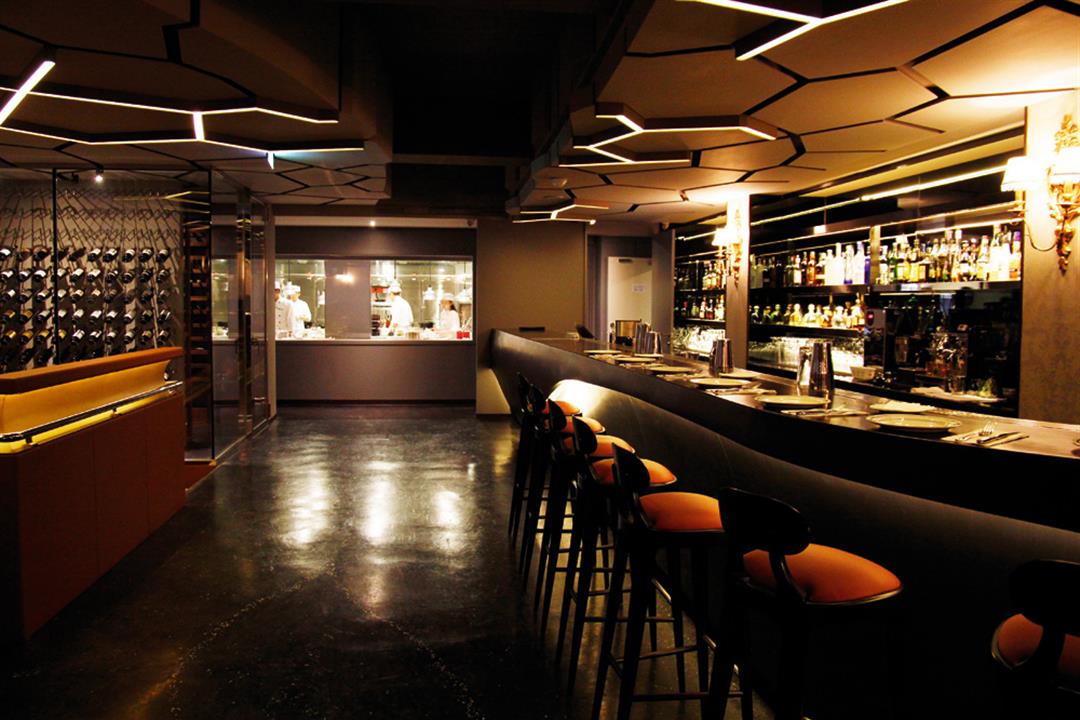
The best of both worlds: entering a Pasadena outlet is like arriving in France—but with the flavors of Taiwan as a bonus.
In addition to fostering the talents of its own people, Pasadena also regularly invites a Michelin-starred chef, Christian Le Squer, to visit Taiwan. Le Squer integrates local Taiwanese ingredients into traditional French cuisine, demonstrating a rarely acknowledged fact: French cuisine doesn’t always have to use expensive ingredients like imported caviars or Périgord truffles. In fact, seasonal fresh local asparagus and traditional fermented bean curd can create dishes to compete with any made with such costly materials.
Le Squer, executive chef at the venerated Michelin three-star Ledoyen in Paris, has been to Taiwan three times at Pasadena’s invitation. He has visited Taiwan’s organic farms, met local chefs who adhere to traditional cooking techniques, and fully experienced the real flavors of Taiwan’s local cooking. Le Squer was astounded by the variety and quality of Taiwan’s traditional food, especially Gangshan’s fermented bean curd, Miaoli’s wood-fire refined malt sugar, and Tainan’s bandoh, a Taiwanese-style banquet. He especially designed a French cuisine package exclusively for Taiwan’s gourmands.
And in 2012, Pasadena organized a French-style cuisine event at Xinzhuang Elementary School with the Michelin chef as special guest. Local farmers were invited to the occasion, which provided Taiwan’s first “education in taste” for the local schoolchildren.
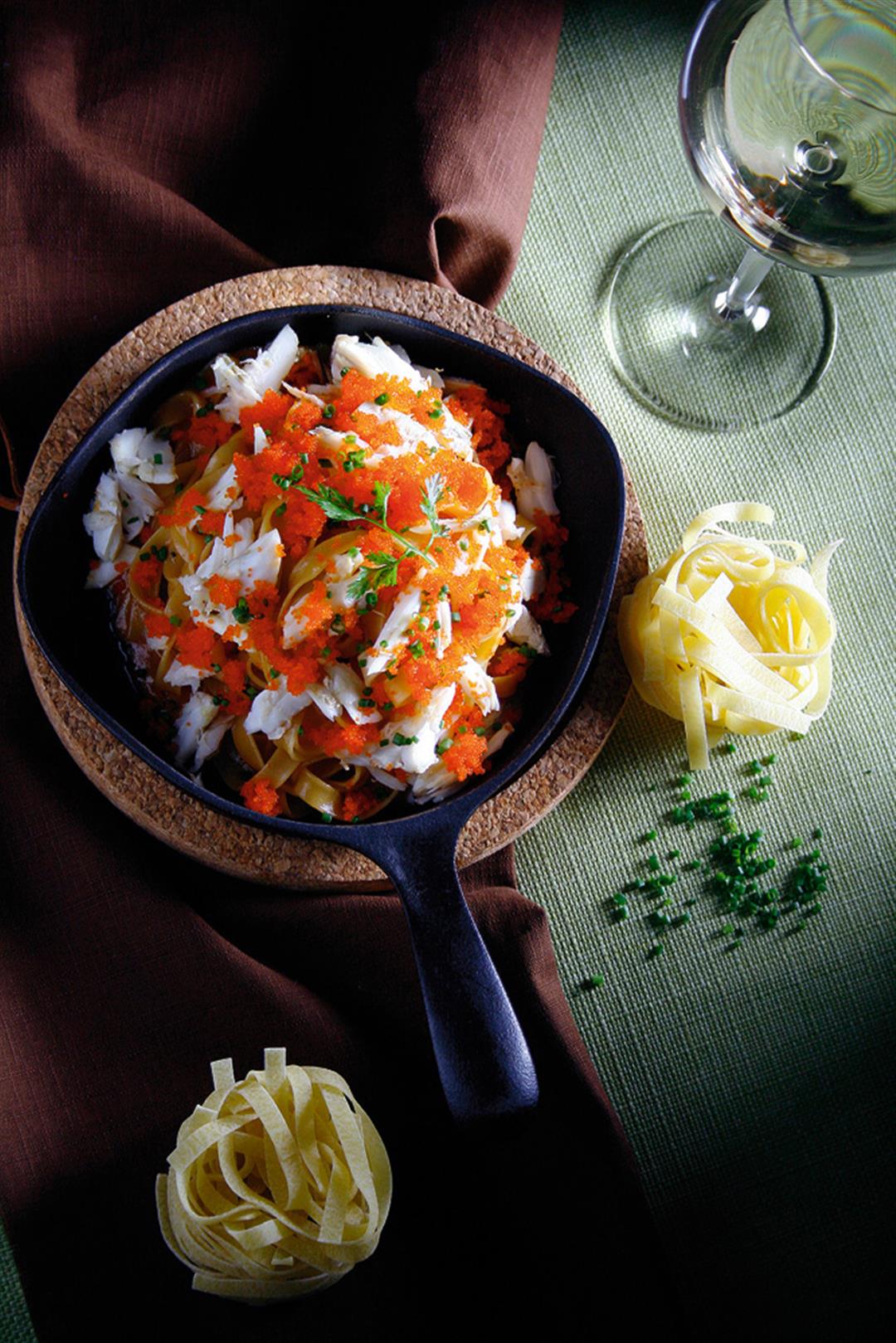
The best of both worlds: entering a Pasadena outlet is like arriving in France—but with the flavors of Taiwan as a bonus.
In order to build and realize its concept of “the good life,” in 2011 Pasadena further expanded its business into Zuoying High Speed Rail Station, also making its bread available with meals served on high-speed rail services. So Pasadena was able to utilize the nation’s rail network to transport its delicacies across the island.
Becoming a provider for the high-speed rail station was a very competitive process. But Pasadena actually gave up an opportunity offered by Taiwan High Speed Rail to rent a space of nearly 660 square meters. Instead they chose a vacant space of only about five square meters—next to an automatic ticket machine—to be their new store.
Pasadena did its market research well, observing crowds at different times, the characteristics of consumer groups, consumption per customer, and purchasing patterns, and scrutinizing the variety and quantity of products that people were buying from the competition. Pasadena researchers even posed as travelers with a set budget to see what attracted them. Finally, they concluded that providing a range of hot foods—something more formal than a regular snack—was the place to be.
Pasadena decided to sell Western-style soups, identifying a number of possibilities from their existing “Ready to Cook” production line. Eventually, they decided to integrate a range of Western culinary concepts, and selected four traditional soups from different regions including France, Italy, the US, and Hungary. “Soup with bread makes a delicious meal” became their catchphrase, hoping that such an exotic dining experience would fit well with traveling on the high-speed rail to distant cities. Finally, the idea of “soups from exotic regions to accompany your journey” became their marketing positioning. So to add to the familiar culture of the railway lunchbox, Pasadena has offered another more glamorous choice.
The product strategy in the new store took into account customers’ needs in terms of meals on board the train and gift packages for friends and relatives. In addition to the delicious soups, the well-known wine-steeped longan bread was also a key item. The huge success of the launch could be perhaps attributed to the fact that these two major items were available in the same store. Records were set with 300 servings of soup and 400 loaves of wine-steeped longan bread sold on opening day.
Hsu firmly believes that the secret of creating a fine food culture lies in not just the taste of individual products, but the spirit and background of the food. Pasadena’s efforts include everything from entering international competitions to in-depth research into local organic ingredients, from supporting farmers with eco-farming to inviting a Michelin chef to use local ingredients in adapting French cuisine, and providing education in food culture for local children. All these endeavors demonstrate a boldness of thought in creating a new culture of taste for Taiwan.
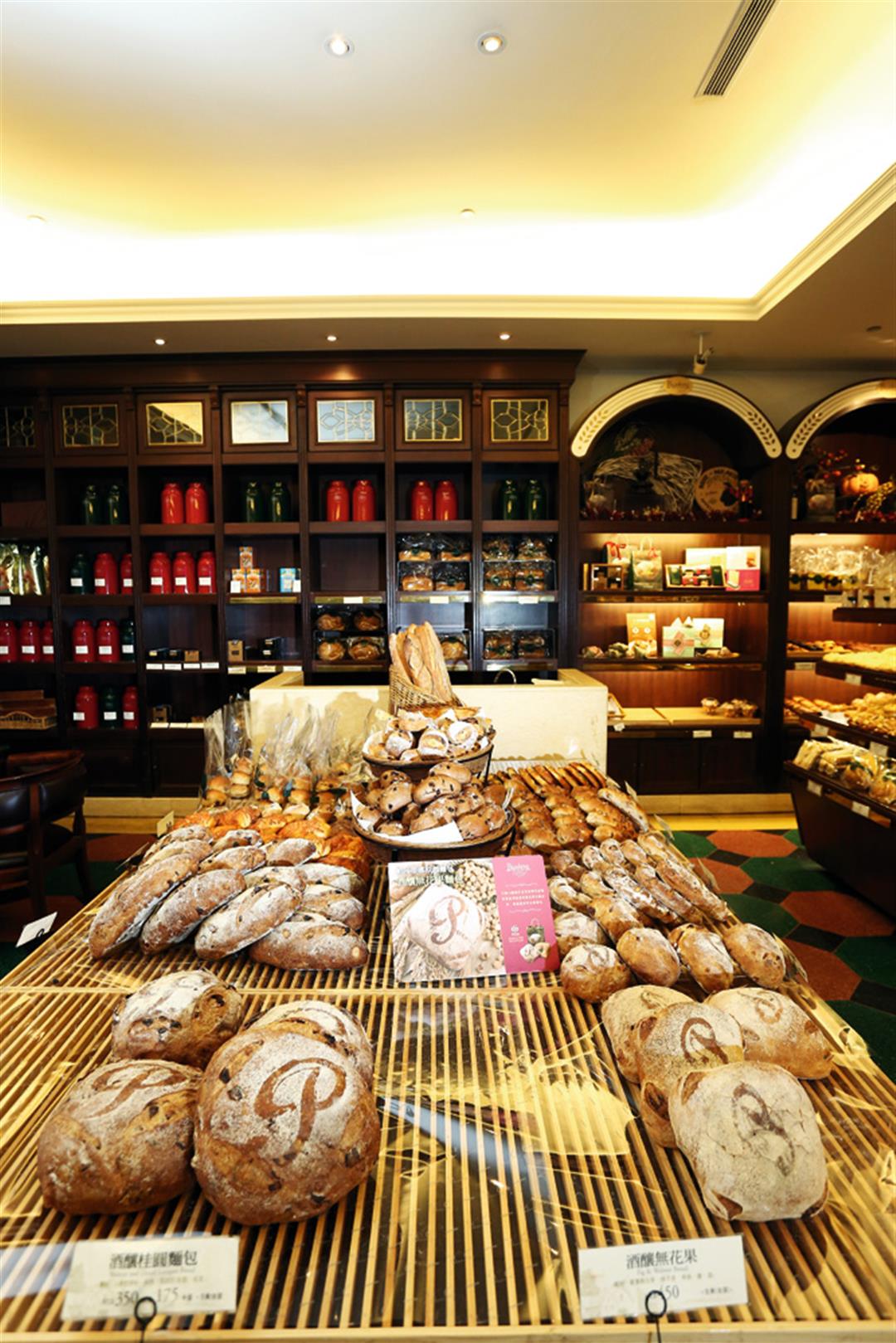
Pasadena has nurtured a number of master bakers. Champion Wu Pao-chun developed the globally renowned wine-steeped longan bread (facing page, left foreground)while at Pasadena.
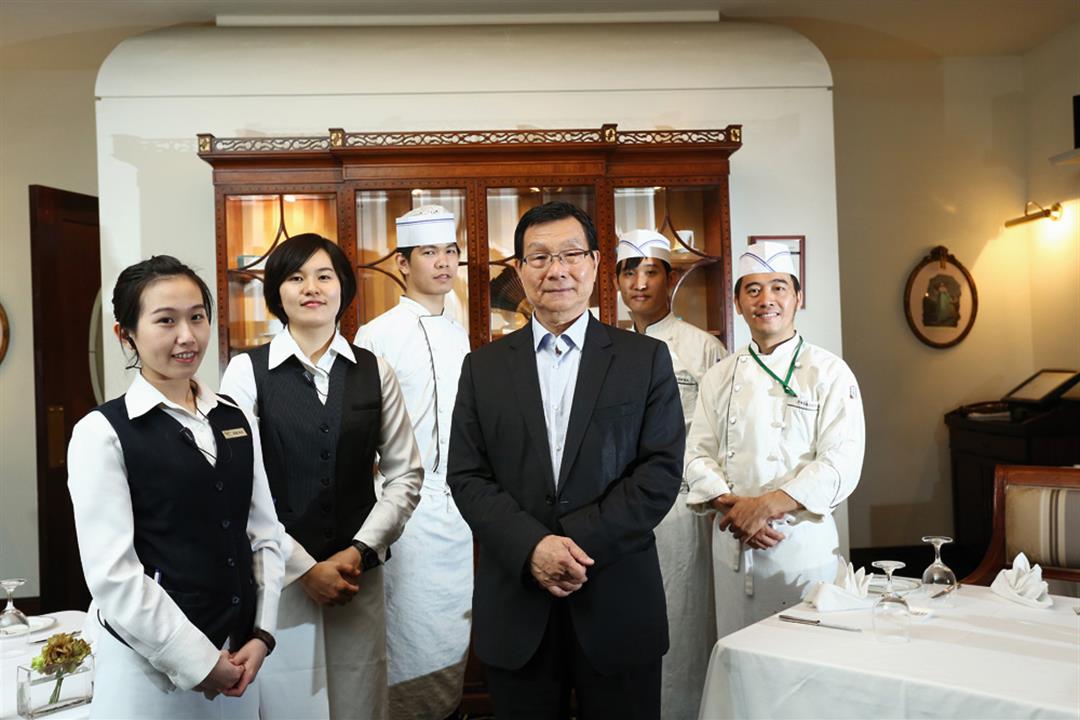
Pasadena has become a wonderful example of innovation and the evolution of Taiwan’s catering industry. The photo shows Pasadena founder Hsu Cheng-chi (center) and his team.
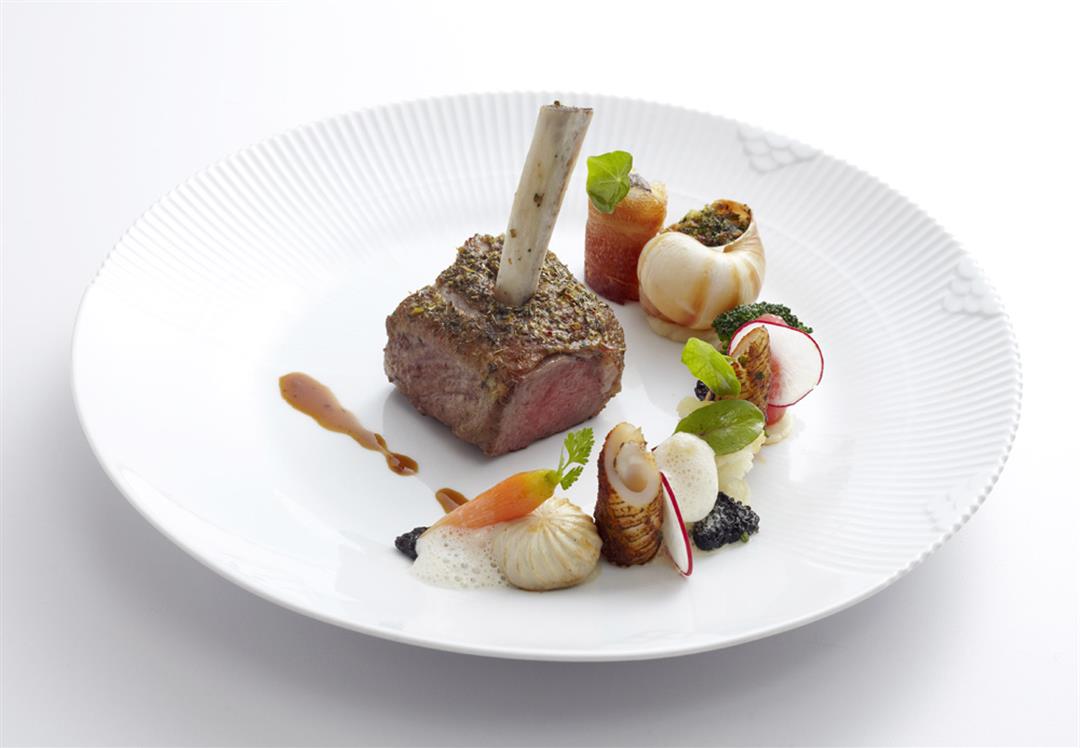
Exquisite dishes with color, flavor and aroma convey Pasadena’s ideal: to enhance the lives of its customers.

@List.jpg?w=522&h=410&mode=crop&format=webp&quality=80)




